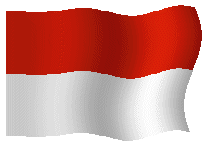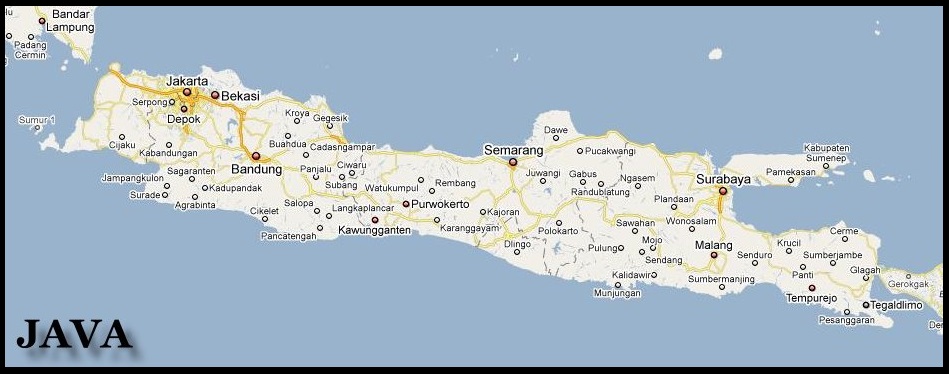

 |
Island of Java ~ History |

|
History
Java (Indonesian: Jawa; Javanese; Sundanese) is an island of Indonesia. With a population of over 141 million (the island itself) or 145 million (the administrative region) as of 2015 Census released in December 2015, Java is home to 56.7 percent of the Indonesian population, and is the most populous island on Earth. The Indonesian capital city, Jakarta, is located on western Java. Much of Indonesian history took place on Java. It was the center of powerful Hindu-Buddhist empires, the Islamic sultanates, and the core of the colonial Dutch East Indies. Java was also the center of the Indonesian struggle for independence during the 1930s and 1940s. Java dominates Indonesia politically, economically and culturally.
Formed mostly as the result of volcanic eruptions, Java is the 13th largest island in the world and the fifth largest in Indonesia. A chain of volcanic mountains forms an eastwest spine along the island. Three main languages are spoken on the island, with Javanese being the dominant; it is the native language of about 60 million people in Indonesia, most of whom live on Java. Most residents are bilingual, with Indonesian as their first or second language. While the majority of the people of Java are Muslim, Java has a diverse mixture of religious beliefs, ethnicities, and cultures.
Java is divided into four provinces, West Java, Central Java, East Java, and Banten, and two special regions, Jakarta and Yogyakarta.
Etymology
The origins of the name "Java" are not clear. One possibility is that the island was named after the jįwa-wut plant, which was said to be common in the island during the time, and that prior to Indianization the island had different names. There are other possible sources: the word jaś and its variations mean "beyond" or "distant". And, in Sanskrit yava means barley, a plant for which the island was famous. "Yawadvipa" is mentioned in India's earliest epic, the Ramayana. Sugriva, the chief of Rama's army dispatched his men to Yawadvipa, the island of Java, in search of Sita. It was hence referred to in India by the Sanskrit name "yavaka dvipa" (dvipa = island). Java is mentioned in the ancient Tamil text Manimekalai by Chithalai Chathanar that states that Java had a kingdom with a capital called Nagapuram. Another source states that the "Java" word is derived from a Proto-Austronesian root word, Iawa that meaning "home". The great island of Iabadiu or Jabadiu was mentioned in Ptolemy's Geographia composed around 150 CE Roman Empire. Iabadiu is said to means "barley island", to be rich in gold, and have a silver town called Argyra at the west end. The name indicate Java, and seems to be derived from Hindu name Java-dvipa (Yawadvipa).

San Francisco California

Created on: 2016.03.11
Published on: 2017.01.28